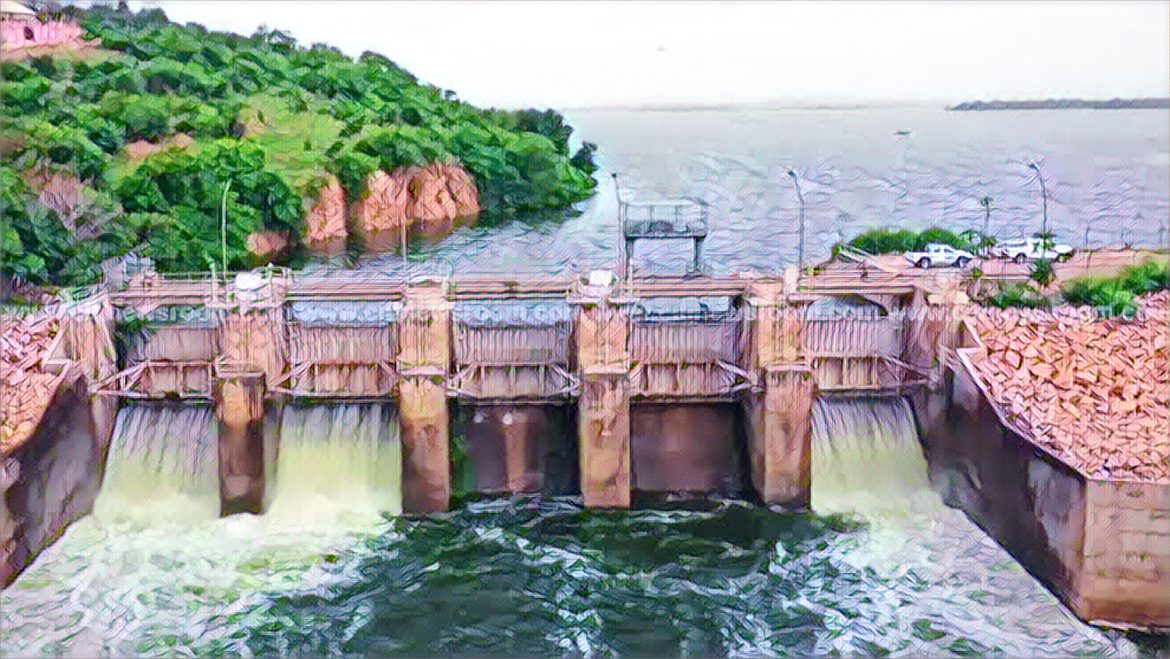Encroachment on the buffers of the Weija Dam by real estate developers and other human activities is posing a severe threat to water security in the Accra region.
Real estate developers have erected numerous structures close to the dam, leading to siltation in the reservoir and making water treatment by the Ghana Water Company Ltd (GWCL) a challenging task. Furthermore, farming activities in communities along the dam, such as Obom, Joma, Denkyira, Tuba, and Weija, have adversely impacted water quality as fertilizers and chemicals enter the water.
The alarming situation came to light during a visit to the Weija treatment facility by a team led by Dr. Henry Kwabena Kokofu, the Executive Director of the Environmental Protection Agency (EPA). The team included representatives from the enforcement and monitoring unit of the EPA, National Security, the Ghana Armed Forces, and the GWCL.
The Weija Dam, which supplies water to half of Accra’s 4.5 million residents, is under serious threat due to encroachment.
Upon arrival at the site, it became apparent that hundreds of unauthorized buildings had sprouted within the 300-meter buffer zone of the dam. Some of these structures were already occupied, while others were in various stages of completion. Quarrying activities were taking place within the buffer zone, and construction materials were encroaching on the dam’s boundaries. Seaweeds had also infested parts of the water body, causing further hindrance to water production.
Dr. Kokofu, in shock at the extent of encroachment, declared that immediate measures would be taken to cease construction activities. Legal processes would also be initiated to dismantle all illegal structures within the dam’s buffer zone.
He emphasized the importance of safeguarding the water reservoir as a critical national asset and stressed the need to protect it from illegal activities that compromise its integrity. Dr. Kokofu made it clear that the EPA would collaborate with relevant ministries and stakeholders to halt pollution of the reservoir resulting from irresponsible farming practices.
John Koppoe, the station manager of the Weija Treatment Plant, highlighted the consequences of encroachment on GWCL’s operations. The deterioration of raw water quality led to increased treatment costs. Siltation, seaweed invasion, and chemical pollution further reduced the reservoir’s storage capacity.
Koppoe emphasized the potential catastrophic outcome for Accra if the dam were to collapse. The polluted water required more chemicals and processes to render it potable, leading to higher production costs and increased wear and tear on GWCL equipment.
It is imperative to address this encroachment issue promptly to ensure the continued supply of clean and safe water to the people of Accra.
Source: [Daily Graphic]




